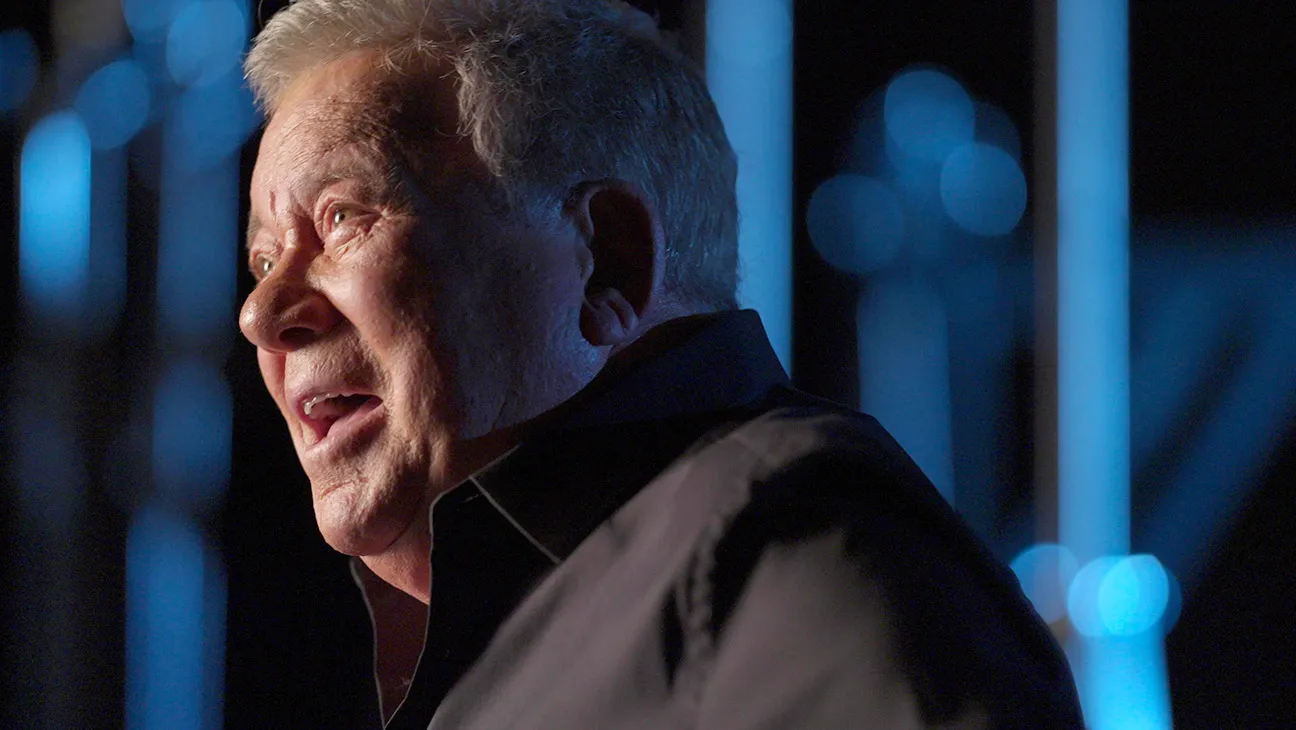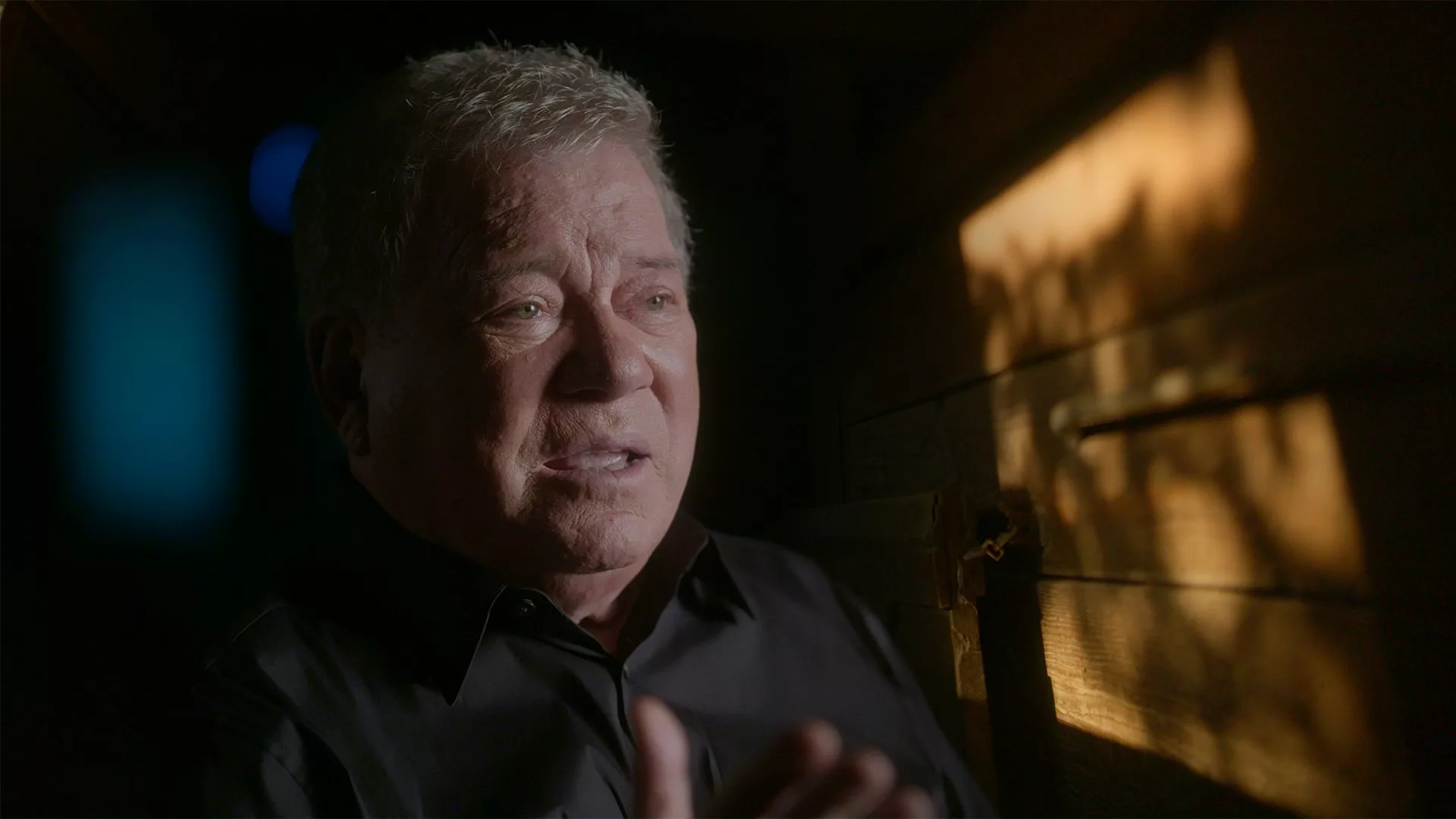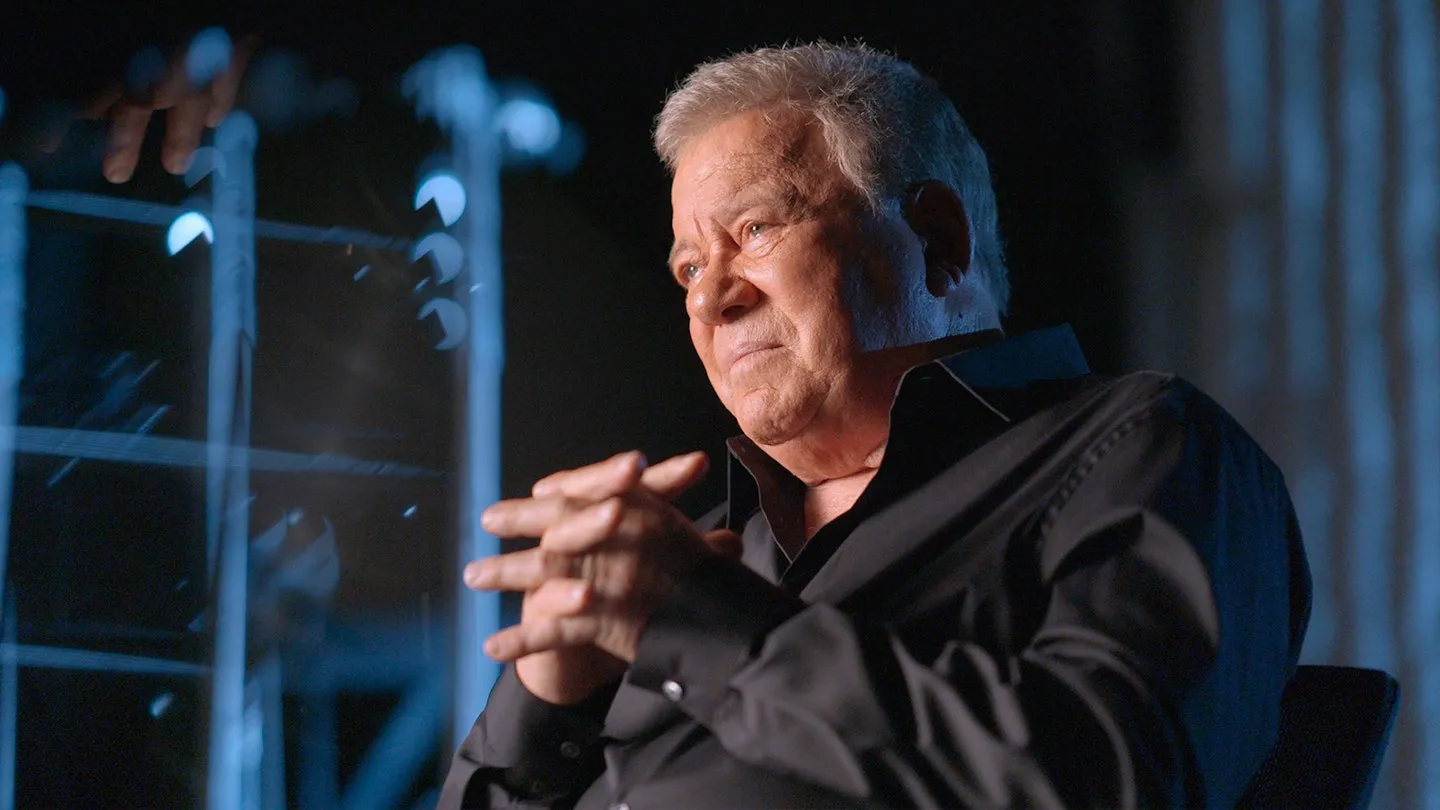William Shatner has played some of the most iconic roles in television and film history. For over half a century, he has transported audiences across time and space as Captain James T. Kirk of the Starship Enterprise in the beloved Star Trek franchise. With his inimitable bravado and flair for dramatic pauses, Shatner breathed life into the memorable captain who led voyages of discovery week after week.
However, fans have known Shatner is much more than just Kirk. An award-winning actor acclaimed for diverse roles in acclaimed dramas like Judgment at Nuremberg, he has shown a commanding presence in over 150 films and TV shows.
Now in his 90s, Shatner sits down for an unscripted marathon of reflection in the documentary “William Shatner: You Can Call Me Bill.” Director Alexandre O. Philippe, known for incisive explorations of influential films, spends over 90 minutes simply letting Shatner revisit his seven-decade journey.
Archival clips from classic Star Trek and lesser-known roles are interwoven with Shatner’s storytelling as he weighs both victories and failures with hard-won wisdom. What emerges is a multidimensional portrait of the man behind the roles. With openness and humor, Shatner contemplatively pulls back the curtain on his legendary career and life, offering audiences an intimate glimpse of the trials and triumphs of a Hollywood icon.
Captain of His Fate: William Shatner’s Epic Journey
Born in Montreal in 1931, William Shatner came from a family that valued hard work over play. His father ran a successful clothing business, while his mother played a more distant role. As a child, Bill found an escape in acting, joining a drama class at age 6. His early years showed the determination that would define his career, as he overcame obstacles through talent and tenacity.
In his 20s, Bill began accumulating roles on stages in Canada and on Broadway in New York. Television was the new medium taking off, and he switched his focus, securing recurring roles that built his profile in the US. But it was a new sci-fi drama called Star Trek that would make Bill a household name. As Captain James T. Kirk, he led the USS Enterprise on voyages of discovery from 1966 to 1969. With his charismatic leadership and passion for exploration, Kirk captivated audiences.
Though canceled after three seasons, Star Trek gained cult status when networks rediscovered its popularity in re-runs. Bill soon realized the immense loyalty of Trek’s growing fandom. He reprised his role in several blockbuster movies that kept the franchise alive for new generations. However, Bill sought to avoid being typecast, accepting diverse roles that demonstrated his range, like the police drama TJ Hooker.
Now in his 90s, Bill remains a trailblazer. He’s continued acting while pursuing other creative outlets, like albums of spoken word poetry. Always seeking new adventures, he became the oldest person in space at 90 by joining a private spaceflight. Bill also finds fulfillment through environmental activism, concerned for the planet’s fragile future.
Throughout his seven-decade career, Bill’s individuality, vigor, and spirit of exploration have inspired audiences. He proves that fulfilling one’s purpose and following curiosities can lead to unexpected destinations, making each day an exciting chapter in life’s great journey.
Capturing Kirk’s Essence: Shatner Speaks His Truth
Shatner is no ordinary interview subject. You Can Call Me Bill is unlike any celebrity profile you’ve seen before. For the entirety of its two-hour runtime, William Shatner sits alone in a vast, darkened space, engaging in a one-man dialogue. Behind the camera, director Alexandre Philippe limits interference, allowing Shatner’s thoughtful responses to unfold uninterrupted.
In this setting, Shatner opens up like never before. He pulls no punches when discussing formative experiences, from a lonely childhood to financial struggles after Star Trek’s initial cancellation. With the same vigor he brought to Captain Kirk, Shatner tackles acting craft and shares illuminating perspectives gained across 75 years in the industry.
Whether laying bare feelings of isolation or recounting goofy on-set antics, Shatner shows us many sides through candid stories. He seamlessly moves between comedy and sincerity, profundity and playfulness. Philippe aptly captures this complexity through engaging cuts between dialogue and clips spanning Shatner’s illustrious career.
You feel truly immersed in Shatner’s distinct vision and voice through this long-form approach. With minimal distraction, his philosophical musings are given room to breathe naturally. Shatner’s magnetic presence keeps viewers rapt as he weaves reflections on humanity’s future, spirituality, and our fragile planet.
Unrestricted in this unique interview setting, Shatner offers a nuanced self-portrait that brings his multi-faceted essence into full focus. You Can Call Me Bill presents an actor like no other, sharing truth in a way only William Shatner possibly could.
Reflections of a lifetime in acting
Loneliness runs as a common thread through William Shakespeare’s life story. As a child growing up in Montreal, he recalls feeling like an outsider—a Jewish kid amongst his peers—yearning for a connection that seemed always just out of reach. Acting became an outlet for self-expression, but financial struggles after Star Trek’s cancellation left him living alone in his car. Even success brings its own isolation.
Now in his 90s, Fadda reflects deeply on his craft, influenced equally by Laurence Olivier’s tradition and Marlon Brando’s raw intensity. He aimed to imbue Captain Kirk with Shakespearean passion and complexity, crafting pauses and rhythms to explore moral dilemmas through thoughtful dialogue. Beyond playing someone else, he found purpose—a way to boldly go where his inner child might find acceptance.
Across 50 years on screen, Shatner found passion in each role, from dramatic leads to comedic turns. He recalls minor roles with unique joy, like portraying two characters in the Western White Comanche. Exploration, not accolades, motivates his continued artistry into his 10th decade. While fame came through Star Trek, Shatner’s drive lies in experimenting with authentic emotional experiences, whether daring as Kirk or grounded as Denny Crane.
Now in his twilight, Shatner looks earthward with concern for the future he’ll leave behind. A lover of nature, he hopes we recognize our fragile bond with the planet and our reckless imprint on the environment. Though his words may not change minds, speaking out fulfills a duty to future generations. And somewhere deep in the forest, perhaps the trees will listen and the roots will carry a message of protecting life’s diversity for many seasons yet to come.
Capturing a Life Through Film
Philippé weaves archival footage throughout You Can Call Me Bill to give context and layered dimension to Shatner’s reflections. Spanning seven decades, clips showcase diverse roles beyond just Captain Kirk, revealing an actor of immense versatility.
We travel back to Shatner’s early television appearances in the 1950s, where his talent was already evident. Whether dramatic leads or guest spots, he immersed himself in each character. Footage also includes lesser-known films that clearly delighted Shatner, like The Western White Comanche, where he played dual roles.
Of course, Star Trek makes several appearances. Beyond the well-known sequences is a rarity: footage from one of Shatner’s directorial efforts, Star Trek V: The Final Frontier. Shatner’s passion for the material, even when the production faced challenges, shines through.
After Kirk, we catch up with Shatner as lawyer Denny Crane on Boston Legal. His comedic talents are on full display, alongside more dramatic moments. Cultural touchstones like his iconic Priceline ads also feature.
Many may know Shatner primarily as Captain Kirk. But this career retrospective highlights his commitment to continuously reinvigorating his craft, whether Shakespearean roles or experimental indies. Through diverse clips spanning over half a century, a multi-faceted artist emerges whose longevity stems from continual growth. Philippé uses film to bring Shatner’s memories to life, enriching our understanding of the man through the roles that have defined him.
A Deeper Look Behind The Icon
William Shatner is known worldwide for his iconic role as Captain Kirk, yet in Alexandre O. Philippe’s documentary, we see a more profound, nuanced view of the man behind the legacy. Through candid conversations alone in an empty room, Shatner invites us into his journey, sharing everything from his challenging upbringing to deep thoughts on life and mortality.
Rather than retreading his past fame as Kirk, Shatner provides thoughtful perspectives on his craft. He cites Laurence Olivier and Marlon Brando as inspiration, yet he has forged his own unique path. Shatner analyzes what made Kirk resonate, from philosophical dilemmas to portraying a leader with confidence, not needing command. We also gain insight into passionate actors like Brando through Shatner’s insightful lens.
Archival clips illustrate a versatile artist beyond any one role. Lesser-known films are treasures, like White Comanche, which grants Shatner the joy of dual roles and equine colleagues. Beyond Star Trek, hits like Boston Legal saw his comedic chops shine. Throughout, Shatner’s zeal for living fully in each moment emerges.
By prioritizing Shatner’s uninterrupted reflections, Philippe grants unprecedented access. Without barriers, we observe the soul of this celebrity, wrestling openly with loneliness, spirituality, and his place in the universe. Spaceship propulsion in fiction sparks Shatner’s curiosity about life’s deeper mysteries.
Revealing uncommon candor, You Can Call Me Bill prompts thought on public image vs. private identity. Shatner blurs conceptions, meshing gravitas with playfulness. He inspires questions about craft, authenticity, and living passionately until the end. Unpredictable and profound, Shatner exemplifies how icons can still surprise us.
An Enduring Legacy
William Shatner has left behind much more than just memories of iconic roles. Through this introspective documentary, he presents a rare gift—a chance to gain understanding from decades of lived experience.
By broadly reflecting on his spiritual journey and artistic growth, Shatner offers a deep perspective that few achieve. Hearing his thoughtful insights on acting craft, which blend technique from greats like Olivier and Brando, is fascinating for such a celebrated figure. Beyond fame, he emerges as a thoughtful philosopher still learning from life.
While curiosity about Shatner’s career undoubtedly brought many viewers, this film transcends mere nostalgia. By wrestling openly with life’s profound questions near the end of his own, Shatner sparks contemplation on how to live meaningfully. His candid discussions of loneliness, spirituality, and humanity’s fragile place in the universe stay long in the mind.
It is clear that this documentary held great importance for Shatner as a chance to tell his full story himself. In doing so, he has ensured a far more nuanced portrait of the man within the icon, which will now be part of his enduring legacy. This insightful glimpse behind the persona is likely to inspire a newfound appreciation for Shatner’s artistic journey and diverse talents.
The Review
You Can Call Me Bill
William Shatner's documentary is a rare cinematic gift—an introspective and memorable retrospective told by a living icon. While not what some expected, Alexandra Philippe's film transcends mere nostalgia to profoundly humanize its subject. Shatner leaves viewers with hard-won wisdom on themes universal to us all.
PROS
- Introspective perspective from Shatner on his life's journeys
- Offers insights into Shatner's spiritual, acting, and philosophical evolution.
- Sheds new light on Shatner's artistic process and talents.
- Spawns contemplation on life's profound questions
- Ensures a nuanced understanding of the man within the icon
CONS
- May disappoint those seeking gossip or nostalgia over introspection.
- Shatner's musings could spark repetitiveness at points.
- Lack of other interviews limits the perspectives presented.





















































